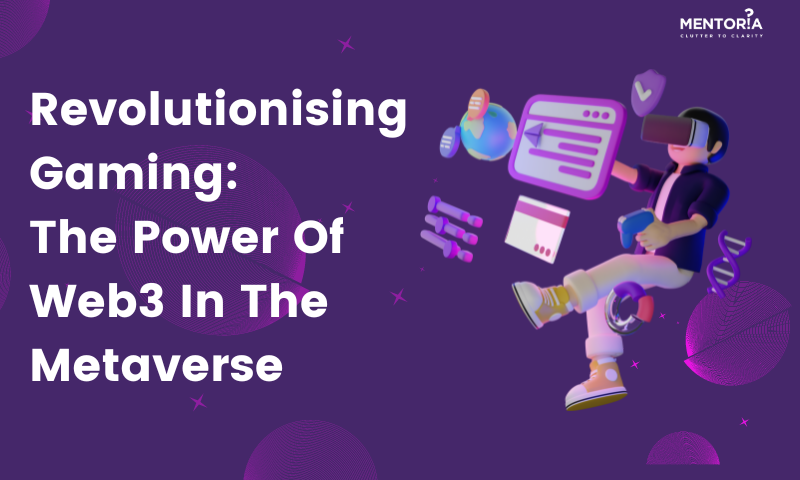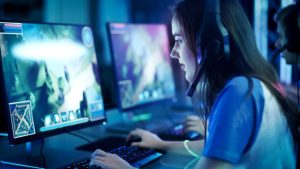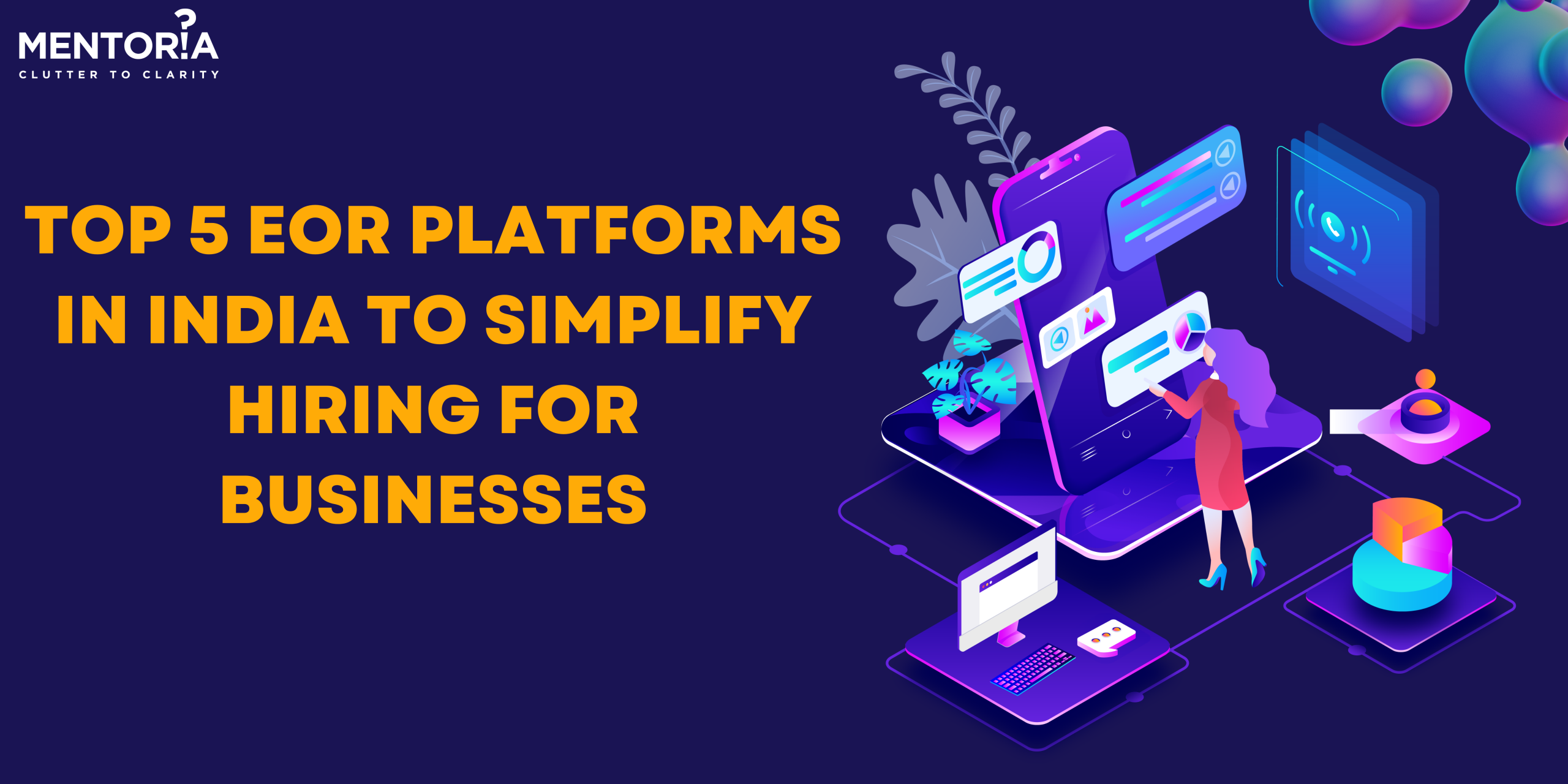Revolutionising Gaming: The Power Of Web3 In The Metaverse

Jump to Section
The convergence of Web3 technology and the metaverse has sparked a paradigm shift in the gaming landscape, opening up a world of unprecedented opportunities and experiences. As traditional gaming continues to evolve, the integration of blockchain, decentralised finance, and virtual reality is unleashing a transformative power that transcends the boundaries of imagination. Players are no longer confined to the limitations of a single game; they are now embarking on interconnected adventures across multiple virtual realms, with true ownership and economic incentives at the heart of this new era. In this blog, we delve into the captivating journey of how the metaverse is reshaping gaming as we know it and unlocking a vast realm of possibilities for both developers and players alike.
The Rise Of Web3: Empowering Players And Redefining Ownership
Web3 technology, powered by blockchain and decentralised networks, has ushered in a new era of ownership and control for players. In traditional gaming, players often invest time and money into acquiring in-game assets, only to have limited ownership and control over them. However, with Web3, players can truly own their digital assets through the use of non-fungible tokens (NFTs). NFTs are unique, verifiable tokens that represent ownership of a specific digital item, such as in-game items, virtual real estate, or even characters. This revolutionary concept enables players to buy, sell, and trade their assets freely, creating a vibrant virtual economy where value can be created and retained by players themselves.
The Metaverse: A World Without Boundaries
The Metaverse is the culmination of virtual worlds interconnected into a vast, seamless universe. It transcends the limitations of individual games, allowing players to explore and interact across multiple virtual experiences. Imagine a world where you can seamlessly travel from a mediaeval fantasy realm to a futuristic space station, all within the same interconnected universe. The Metaverse offers a dynamic and immersive experience, blurring the lines between reality and virtuality. It provides a platform for social interactions, commerce, entertainment, and endless opportunities for creativity and self-expression.
Play-To-Earn: Gaming As A Source Of Income
Web3 and the Metaverse have unlocked the potential for players to earn real-world value from their gaming experiences. Through play-to-earn models, players can monetize their skills, time, and achievements. By participating in decentralised gaming platforms, players can earn cryptocurrency or other valuable rewards that can be converted into real-world assets or traded on digital marketplaces. This paradigm shift has transformed gaming from a leisure activity to a potential source of income for players around the globe. It provides new avenues for economic empowerment, particularly in regions where traditional job opportunities may be limited. Here are some ways that play-to-earn gaming can be a source of income:
- Selling in-game assets: Players can earn money by selling in-game assets, such as digital collectibles, weapons, or land. These assets can be bought and sold on digital marketplaces, and their value can fluctuate depending on supply and demand.
- Participating in in-game tournaments: Players can also earn money by participating in in-game tournaments. These tournaments can be for cash prizes or for other valuable rewards, such as cryptocurrency.
- Providing in-game services: Players can also earn money by providing in-game services, such as running a guild, providing training, or arbitraging in-game markets.
- Staking: Players can also earn money by staking their cryptocurrency in play-to-earn games. Staking is a process of locking up your cryptocurrency to support the network and earn rewards.
These are just a few of the ways that play-to-earn gaming can be a source of income. As the industry continues to grow, new and innovative ways to earn money from gaming will emerge.
Decentralised Governance: Empowering The Gaming Community
In the world of Web3 and the Metaverse, power is decentralised, and decision-making is in the hands of the community. Through decentralised governance models, players have a say in shaping the direction of virtual worlds and gaming ecosystems. Decisions regarding in-game economies, rules, and updates are made collectively, fostering a sense of ownership and participation. Players can vote on proposals, contribute to development, and shape the future of the virtual spaces they inhabit. This empowerment creates a more inclusive and player-centric environment, where the community’s voice is valued and integrated into the decision-making process. Some examples of companies that are using decentralised governance models in their gaming platforms:
- Axie Infinity: This is a blockchain-based game where players can collect, breed, and battle digital pets called Axies. The Axie Infinity community votes on proposals that affect the game, such as changes to the in-game economy or new features.
- The Sandbox: This is a voxel-based game where players can build, own, and monetize their own experiences. The Sandbox community votes on proposals that affect the game, such as changes to the in-game economy or new features.
- Decentraland: This is a virtual world where players can interact with each other and explore different experiences. The Decentraland community votes on proposals that affect the game, such as changes to the in-game economy or new features.
- Gods Unchained: This is a blockchain-based trading card game where players can collect and trade digital cards. The Gods Unchained community votes on proposals that affect the game, such as changes to the in-game economy or new features.
- Alien Worlds: This is a blockchain-based game where players can mine for Trillium (TLM), the game’s native cryptocurrency. The Alien Worlds community votes on proposals that affect the game, such as changes to the in-game economy or new features.
These are just a few examples of companies that are using decentralised governance models in their gaming platforms. As the industry continues to grow, more and more games will adopt this model, giving players more control over the games they play.
Boundless Creativity: User-Generated Content Takes Center Stage
Web3 and the Metaverse have unleashed a wave of creativity, inviting players to become creators themselves. User-generated content (UGC) plays a pivotal role in shaping virtual worlds and gaming experiences. Players can design and create their own in-game items, environments, characters, and even entire virtual experiences. The possibilities are endless, limited only by one’s imagination. UGC empowers players to become active participants in the creative process, blurring the line between players and developers. This symbiotic relationship fosters a vibrant and ever-evolving gaming ecosystem, where fresh content and experiences constantly emerge. Here are some examples of how user-generated content (UGC) is taking centre stage in Web3 and the Metaverse:
- In the game Axie Infinity, players can create their own Axies, which are digital pets that can be used to battle, collect, and trade. Players can also create their own lands, which can be used to host games, events, or simply as a place to relax and socialise.
- In the game The Sandbox, players can create their own voxel-based worlds and experiences. Players can use a variety of tools to create anything they can imagine, from simple games to complex simulations.
- In the game Decentraland, players can create their own avatars, buildings, and other assets. Players can also participate in in-game events and activities, such as concerts, festivals, and sporting events.
- In the game Gods Unchained, players can create their own decks of cards and compete against other players in tournaments. Players can also trade their cards with other players, or sell them on the open market.
- In the game Alien Worlds, players can mine for Trillium (TLM), the game’s native cryptocurrency. Players can then use TLM to purchase land, tools, and other in-game items.
Cross-Platform Interoperability: Breaking Down Barriers
Web3 and the Metaverse have shattered the barriers that once existed between different gaming platforms. With cross-platform interoperability, players can seamlessly connect and interact across various devices and virtual worlds. Whether you’re gaming on a PC, console, or mobile device, you can now join forces with friends and explore virtual realms together, regardless of the platform they are using. This newfound connectivity enhances social interactions and fosters a sense of community that transcends individual gaming ecosystems. Cross-platform interoperability not only expands the player base but also encourages collaboration, competition, and the exchange of ideas across different gaming communities. Here are some examples of cross-platform interoperability in gaming:
- Fortnite: This popular battle royale game allows players to compete against each other regardless of the platform they are using. Players can use their existing accounts to log in on any device and pick up where they left off.
- Rocket League: This vehicular soccer game also supports cross-platform play. Players can team up with friends on different platforms and compete in online matches.
- Minecraft: This sandbox game has supported cross-platform play since 2017. Players can explore the world together, build structures, and participate in mini-games regardless of the platform they are using.
- Call of Duty: Warzone: This popular battle royale game allows players to compete against each other on PC, consoles, and mobile devices. Players can use their existing accounts to log in on any device and pick up where they left off.
- Valorant: This tactical shooter game also supports cross-platform play. Players can team up with friends on different platforms and compete in online matches.
These are just a few examples of cross-platform interoperability in gaming. As the industry continues to grow, we can expect to see even more games that support this feature.
Here are some of the benefits of cross-platform interoperability in gaming:
- Cross-platform interoperability expands the player base by allowing players to connect and play with each other regardless of the platform they are using. This can lead to increased revenue for developers.
- Cross-platform interoperability enhances social interactions by allowing players to connect and interact with each other across different gaming platforms. This can lead to the formation of stronger gaming communities.
- Cross-platform interoperability fosters a sense of community by allowing players to connect and interact with each other across different gaming platforms. This can lead to the formation of stronger gaming communities.
Enhanced Data Security And Transparency: Protecting Player Rights
In the traditional gaming landscape, players often face challenges related to data security and transparency. Web3 and the Metaverse bring forth enhanced security measures and transparency, safeguarding player rights and ensuring a fair gaming experience. Blockchain technology, with its decentralised nature and cryptographic protocols, provides an added layer of security to in-game transactions, asset ownership, and digital identities. This technology ensures that players have greater control over their personal data and protects them from fraudulent activities, such as unauthorised asset duplication or hacking. Additionally, the transparent nature of blockchain enables players to verify the authenticity and scarcity of digital assets, reducing the risk of counterfeit items in the gaming ecosystem. Web3 and the Metaverse prioritise player trust, empowering individuals to engage in virtual experiences with confidence. Here are some examples of how Web3 and the Metaverse are enhancing data security and transparency in gaming:
- Axie Infinity: This blockchain-based game uses non-fungible tokens (NFTs) to represent in-game assets, such as Axies, which are digital pets that can be used to battle, collect, and trade. The NFTs are stored on the Ethereum blockchain, which provides a secure and transparent ledger of ownership.
- The Sandbox: This voxel-based game also uses NFTs to represent in-game assets, such as land and buildings. Players can own and trade these assets on the Ethereum blockchain, which ensures that they have clear ownership rights.
- Decentraland: This virtual world uses the Ethereum blockchain to store land ownership records. This ensures that players have clear ownership rights to their land and can use it as they see fit.
- Gods Unchained: This blockchain-based trading card game uses NFTs to represent in-game cards. Players can own and trade these cards on the Ethereum blockchain, which ensures that they have clear ownership rights.
- Alien Worlds: This blockchain-based game uses the WAX blockchain to store land ownership records. This ensures that players have clear ownership rights to their land and can use it as they see fit.
Embracing The Metaverse With Mentoria
The disruption caused by Web3 and the Metaverse in the gaming world is nothing short of revolutionary. From ownership and interoperability to play-to-earn models and decentralised governance, these concepts have transformed the way we play, create, and connect in virtual realms. The possibilities for innovation and immersion are boundless as technology continues to evolve. The future of gaming is a collaborative, inclusive, and empowering space where players become creators, economies flourish, and communities thrive. So, embrace the power of Web3, step into the Metaverse, and let your imagination soar in a digital landscape where anything is possible. Get ready to embark on a gaming journey like no other! As this exciting journey continues to unfold, it’s important to stay informed, adapt to new technologies, and seize the opportunities presented by the metaverse. And if you’re looking to navigate this dynamic landscape with expert guidance and support, Mentoria is here to help you unlock your full potential and thrive in the realm of Web3.









